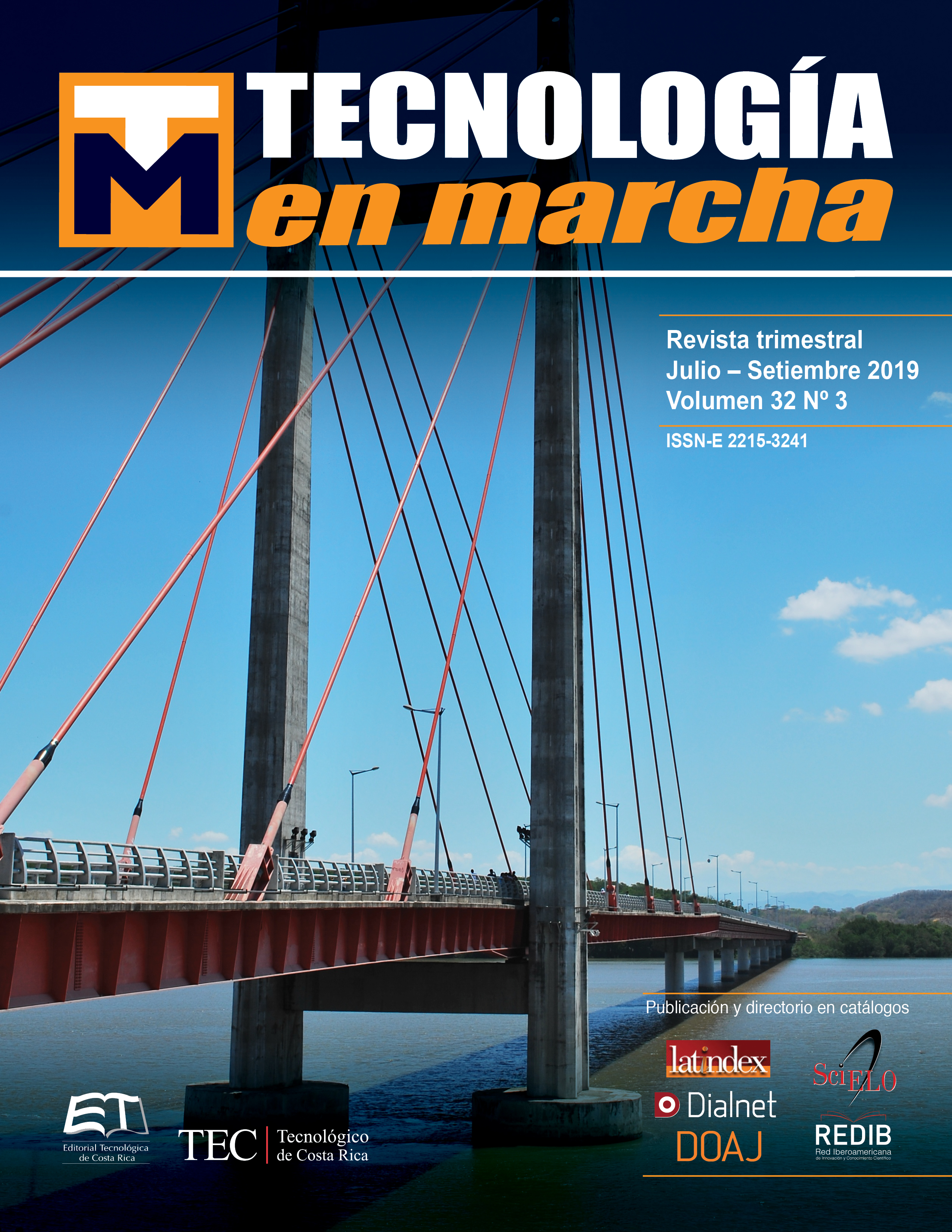Development of an automatized system for a gamma scanning technique
Main Article Content
Abstract
Non-destructive testing techniques have proven to be a powerful tool in the study and characterization of materials. This work presents the development of an automated measurement system based on the attenuation of gamma radiation for the study of materials. First, we described the design process of the electromechanical elements and the automatic control system, followed by its implementation. The results show the capacity and mechanical accuracy of the system. The resolution of the motor and the displacement capacity of the robot are 8 μm for the horizontal movement with maximum carriage travel of bi-directional 54 cm and 4 μm for vertical movement, with maximum carriage travel of bi-directional 57 cm. The system allows for a sample rotation, being the angular trajectory of 360 ° with unidirectional travel. The sensitivity of the system for detecting specific changes in the thickness of the material is verified statistically, also evaluating the sampling periods to obtain a measurement with precision. The relative error of the measurements is determined and its causes and solutions are discussed.
Article Details
Los autores conservan los derechos de autor y ceden a la revista el derecho de la primera publicación y pueda editarlo, reproducirlo, distribuirlo, exhibirlo y comunicarlo en el país y en el extranjero mediante medios impresos y electrónicos. Asimismo, asumen el compromiso sobre cualquier litigio o reclamación relacionada con derechos de propiedad intelectual, exonerando de responsabilidad a la Editorial Tecnológica de Costa Rica. Además, se establece que los autores pueden realizar otros acuerdos contractuales independientes y adicionales para la distribución no exclusiva de la versión del artículo publicado en esta revista (p. ej., incluirlo en un repositorio institucional o publicarlo en un libro) siempre que indiquen claramente que el trabajo se publicó por primera vez en esta revista.
References
[2] «ASTM E1316-17 Standard Terminology for Nondestructive Examinations,» ASTM International, West Conshohocken, PA, 2017.
[3] «ASTM C1673-10ae1 Standard Terminology of C26.10 Nondestructive Assay Methods,» ASTM International, West Consshohocken, PA, 2010.
[4] M. Nizovtsev, S. Stankus, A. Sterlyagov, V. Terekhov y R. Khairulin, «Determination of moisture diffusivity in porous materials using gamma-method,» International Journal of Heat and Mass Transfer, vol. 51, nº 17, pp. 4161-4167, 2008.
[5] A. C. Moreira, C. R. Appoloni, M. V. Oliveira y C. P. Fernandes, «Structural Characterization of Titanium Porous Foams by Gamma Rays Transmission and X Ray Microtomography,» de International Nuclear Atlantic Conference, Santos, SP. Brazil, 2007.
[6] G. Villain y M. Thiery, «Gammadensimetry: A method to determine drying and carbonation profiles in concrete,» NDT&E International, vol. 39, pp. 328-337, 2006.
[7] «ASTM C1718-10 Standard Test Method for Nondestructive Assay of Radioactive Material by Tomographic Gamma Scanning,» ASTM International, West Conshohocken, PA, 2010.
[8] «ASTM C1592/C1592M-09 Standard Guide for Making Quality Nondestructive Assay Measurements,» ASTM International, West Conshohocken, PA, 2009.
[9] National Instruments, LabVIEW™ User Manual, Austin, Texas: © 1992–2003 National Instruments Corporation, April, 2003.
[10] ASM Aerospace Specification Metals Inc., «Aluminum 6061-T6 - ASM Material Data Sheet,» MatWeb, LLC, 2017. [En línea]. Available: http://asm.matweb.com/search/SpecificMaterial.asp?bassnum=ma6061t6. [Último acceso: 08 Agosto 2017].
[11] J. H. Hubbell and S. M. Seltzer, «X-Ray Mass Attenuation Coefficients,» NIST National Institute of Standards and Technology, 30 Junio 2017. [En línea]. Available: https://www.nist.gov/pml/x-ray-mass-attenuation-coefficients. [Último acceso: 08 Agosto 2017]

